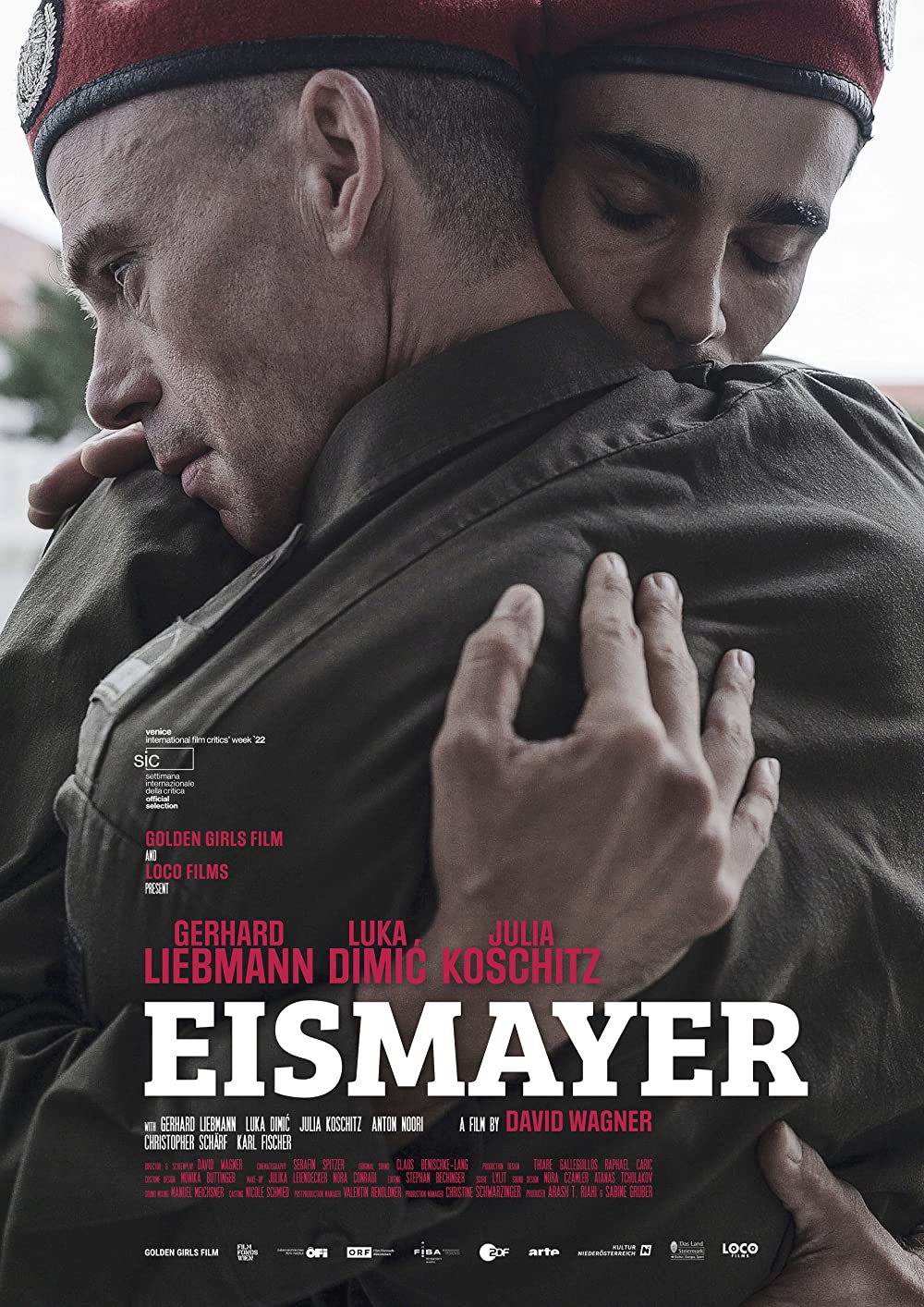
I spent the whole of that film waiting for it to it to be the usual retread of queer trauma, full of the same tired tropes. How delighted I am to have been wrong.
Eismayer is the hard-ass drill instructor who terrifies all the new recruits. In the new batch that need whipped into shape is Falak, an openly gay Bosnian lad. His presence forces Eismayer to confront his own long-held secrets.
I spent the first act of this film comparing it in my head to Moffie. All the shouting and screaming, the arbitrary abuse and punitive punishments, the racism and homophobia, I just thought, “Here we go. Another movie about folk shoring up racist, homophobic institutions brimming with toxic masculinity and violence, then sitting around going, “This made me sad!” Maybe don’t do that then pal.” But that’s not what this film is.
Because Falak’s defiant refusal to be shamed demonstrates that the world has moved on. It rocks Eismayer’s whole worldview to see Falak be open about being gay and the other men in the company . . . are just fine with it. They don’t see him as a predator or a threat or a joke or an embarrassment. He’s just Falak, a cheeky bastard. By living out and proud in the army, he demonstrates the potential for a life that Eismayer, a couple decades his senior, had never thought possible.
Based on a true story, this is a tale of gay hope.